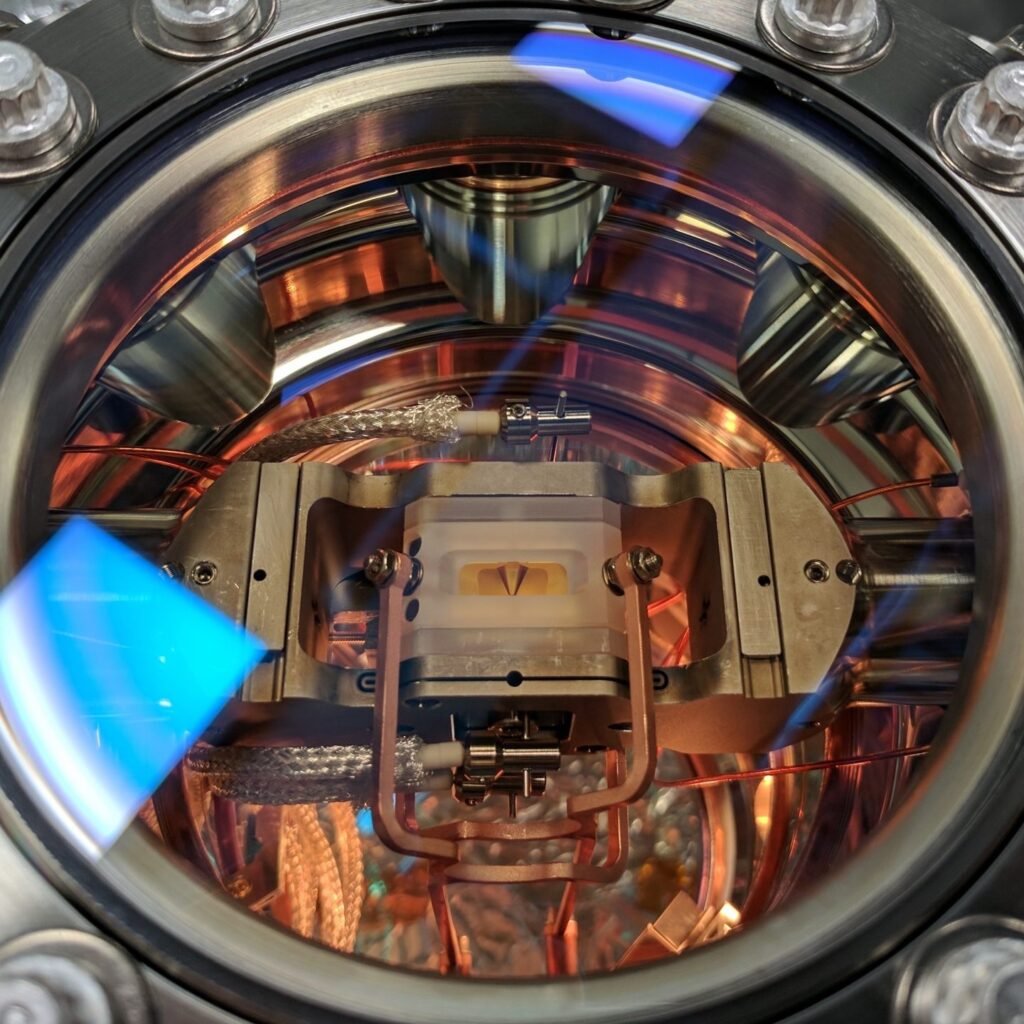Quantum technologies are about to soar to new heights – literally: quantum company Q-CTRL is planning to send ultra-sensitive quantum sensors and navigation systems to space as part of a project to search the moon for water and other resources that will help NASA astronauts in upcoming landings.
The Australian corporation, which uses control engineering concepts to enhance the hardware efficiency of quantum devices, will include quantum technology to assist un-crewed missions expected to launch in 2023 by the Seven Sisters space industry consortium.
The consortium, which was established last year by space start-up Fleet Space, is working to send nanosatellites and exploration sensors to the moon to look for resources and collect data for potential human exploration. The data gathered will help NASA’s Artemis program, which aims to land the first woman and next man on the Moon by 2024.
An outer-space mission would eventually call for next-generation technology. Quantum sensors hold a lot of promise in this context because they take advantage of the incredibly fragile state of tiny quantum particles to provide extremely precise measurements. Although quantum state instability can be a major barrier in other fields including quantum computing, it is the exact opposite in quantum sensing, where the sensitivity of quantum particles to disturbances can be used to build ultra-responsive measuring instruments.
Quantum sensors can accurately calculate a vehicle’s acceleration and rotation, allowing navigation without the need for a GPS or satellite. This technology may also be used for precise navigation on the moon.
“This means that for a mission with a lengthy loss of telemetry contact, for example, sensors or vehicles on the dark side of the moon, a vehicle can navigate accurately not over hours, but over days and weeks,” Michael Biercuk, the CEO of Q-CTRL
The company is collaborating with Advanced Navigation, an AI-based navigation hardware company, on the creation of a hybrid navigation system that combines quantum and classical techniques.

The company is collaborating with Advanced Navigation, an AI-based navigation hardware company, on the creation of a hybrid navigation system that combines quantum and classical techniques. The two companies have described Quantum-enhanced precision navigation and timing has been identified as the revolutionary advancement in the region.
Q-CTRL, as a company that provides quantum control engineering, primarily to stabilize quantum systems against disturbances and augment their performance, places a strong emphasis on software development; however, as Biercuk explains, building hardware is also essential to the company’s model.
“Some of our customers in quantum sensing are already using our software tools to augment their own devices for things like fundamental physics experimentation. We take that view several steps further with our in-house hardware effort, leveraging quantum control from the point of system design,” he says.
Q-CTRL, as part of its collaboration with the Seven Sisters consortium, will use its own in-house hardware initiative to develop the quantum sensors and navigation systems that will be sent on lunar missions. According to Biercuk, the team is currently developing prototype field-deployable systems and will focus on space qualification over the next few years.
